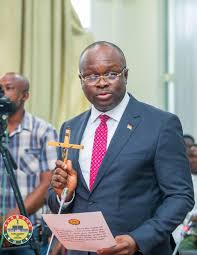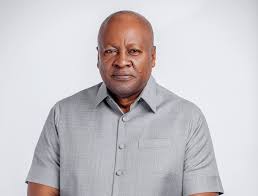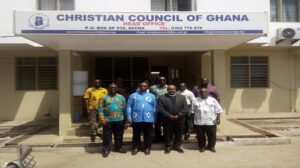Maame Grace Encounters Religious Opposition in $1 Million Scholarship Program

Efforts by Maame Grace, a renowned spiritual coach and philanthropist, to launch a $1 million scholarship initiative aimed at supporting underprivileged students in Ghana have encountered significant opposition from certain religious factions. The initiative, known as the 1026 Scholarship Fund, was designed to offer fully-funded scholarships to brilliant but needy students, enabling them to attend prestigious universities abroad. Despite Maame Grace’s vision of providing life-changing opportunities to students who would otherwise be unable to access higher education, the project has faced unexpected resistance from religious institutions.
The 1026 Scholarship Fund was introduced by Maame Grace on her birthday as part of her ongoing efforts to create meaningful social change. The goal of the initiative was to provide comprehensive support to deserving students, including funding for SAT preparation, exams, and application fees to top-tier universities. The project was to be a collaborative effort with a well-regarded Ghanaian institution that would be responsible for identifying, training, and testing potential beneficiaries. Maame Grace’s management team, led by Dr. Kelly Lartey Mensah, secured a contract with the institution and allocated GHC 200,000 to help kickstart the program.
However, the initiative was derailed when the institution’s board, which was predominantly composed of theologians, suddenly withdrew their support. The official reason for their withdrawal was their objection to collaborating with a non-Christian organization. This decision took Maame Grace by surprise, as the initiative was intended to serve all students, regardless of their religious background, and was designed to offer opportunities solely based on academic merit and financial need. For Maame Grace, the decision underscored a deeper issue that many progressive initiatives in Ghana face—resistance driven by religious bias.
In a YouTube editorial addressing the situation, Maame Grace expressed her frustration and disappointment. “I was not shocked,” she explained. “This program was meant to help children who may never have any hope of higher education. It’s a life-changing opportunity, yet religious bias is denying these young people a brilliant chance to build promising careers.” For Maame Grace, the withdrawal of institutional support felt like a deliberate effort to block progress and deny young people the opportunity to build better futures.
This episode of resistance is not an isolated incident for Maame Grace. In her editorial, she also reflected on similar challenges she has faced in her media career, where she alleged that pastors had pressured television stations to avoid airing her shows, citing her perceived lack of alignment with their beliefs. This recurring pattern of opposition from religious leaders, she suggested, was symptomatic of a broader issue—religious institutions exerting undue influence over public initiatives, particularly when those initiatives threaten their influence or go against traditional dogmas.
Maame Grace’s critique of these religious leaders was sharp and pointed. She accused them of hypocrisy, arguing that while they preach hope and salvation to the poor, they are also the ones hindering efforts that could make a tangible difference in people’s lives. “These same religious leaders preach hope to the poor, promising them heaven, but behind the scenes, they frustrate initiatives like the 1026 Scholarship Fund, which is intended to help these same people,” she said. For Maame Grace, it was a paradox that the same leaders who encourage people to be patient and hopeful for a better life in the afterlife were also sabotaging programs that could offer a better life here on earth.
This episode also brings to light the broader challenges faced by forward-thinking initiatives in societies where religion plays a dominant role. In such environments, efforts to bring about change are often hindered by entrenched religious beliefs and the influence of religious institutions that prioritize dogma over tangible progress. Maame Grace’s initiative, which aimed to provide education and opportunities to underprivileged students, was intended to be a beacon of hope for those who have long been excluded from higher education due to their socio-economic status. Yet, the project’s potential to bring about positive change was threatened by the very religious institutions that, in theory, should be supporting efforts to help the poor and disadvantaged.
Despite the setbacks, Maame Grace remains determined to continue her work. She expressed her commitment to finding new partners for the 1026 Scholarship Fund and emphasized that education should transcend religious boundaries. “We must prioritize humanity over dogma,” she stated. For her, the focus should be on providing young people with the skills and opportunities they need to succeed, regardless of their religious background.
In the wake of the religious opposition, Maame Grace’s resolve has only strengthened. She remains steadfast in her belief that education is a fundamental right that should not be denied to any child based on religious affiliations. Her determination to press forward with the scholarship program is a testament to her belief in the power of education to break the cycle of poverty and open doors to new opportunities.
Ultimately, this incident highlights the ongoing challenges faced by those who seek to make a difference in societies where religious fanaticism can sometimes stifle progress. Maame Grace’s experience serves as a powerful reminder that forward-thinking initiatives, no matter how well-intentioned, must often navigate significant obstacles—be they political, social, or religious—before they can achieve their full potential. However, her determination to continue the fight for educational equality demonstrates the resilience and commitment needed to overcome such barriers.







